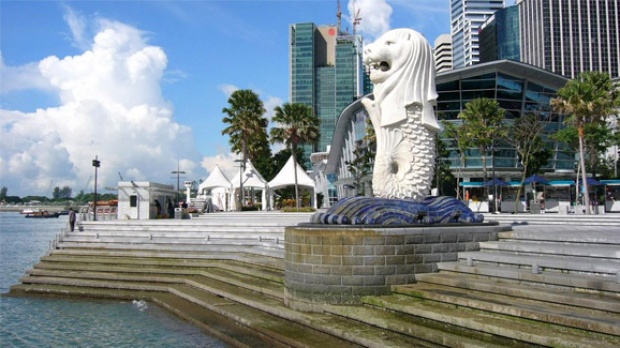
TEMPO.CO, Jakarta - We are not in the habit of writing about nations which have achieved milestones, no matter how successful they have been in nation-building. But a special case is made for Singapore, Indonesia's close neighbor whose fate inevitably, one way or another, for better or for worse, is closely intertwined with ours. Its policies and pragmatism over the past five decades have elicited among us a mix of glee, ridicule, envy, amazement and at times, even anger. It is balanced only by a sense of grateful relief in knowing that the attributes of the first world, like high-tech medical care and a top-notch education system is just an hour's flight away.
Singapore is a nation that invites epithets, both positive and negative. It was, after all, one of our former presidents who referred to the city state as 'the little red dot', now an oft-quoted cliche which even the Singaporeans themselves use on occasion. It is far more than that, of course, transforming itself into a regional financial hub that can rightfully call itself the 'Switzerland of Asia'.
At the other extreme, anti-capital punishment activists referred to Singapore's Disney amusement park as Disneyland with Death Penalty for its unbending adherence to draconian drug laws. Early in its history as an independent nation, it was jokingly known as a 'fine country' for the many heavy fines imposed for seemingly trivial violations such as jay-walking, spitting, urinating in elevators and littering particularly chewing gum. Even the late Lee Kuan Yew, Singapore's founding father and its first prime minister, once admitted that "island nations are political jokes."
Singapore has come a long way since it was the butt of jokes. The rankings credited to this 'East Asia Miracle' today are nothing short of amazing. With a GDP per capita of over US$56,000, it is the third-richest country in the world, trailing only Qatar and Luxembourg. It is the third most competitive country in the world, it tops the globe for ease of doing business and its labor regulations are considered the most business-friendly in Asia, backed by an extraordinary 1.9 percent unemployment rate. To top it all, Singapore is ranked nine out of 187 countries for the seventh consecutive year in the 2014 United Nations Human Development Index.
All these achievements can be attributed to the firm leadership of Lee Kuan Yew, who ruled Singapore for three decades until he stepped down in 1990. He knew that if he was to make something out of the slum-infested, poverty-stricken port city with nothing in the way of natural resources to fall back on, he could only do it with an iron fist. Singaporeans were ingrained early on that being a good citizen meant exercising one's responsibility, more than one's rights. The government realized that the basis of building a strong society was a change of mindset, which in turn required a sound education system. Much of Singapore's success can be attributed to its focus on educating its citizens and tending to their health.
Being a multi-racial society, Singapore has had its share of race riots and social conflicts. But it soon learned to accommodate the major ethnic groups and religions, compelling them to live side-by-side in high-rise housing, rather than in scattered enclaves.
Critics say Singapore was able to succeed because of its small size and the government's tight control of key institutions, such as the ruling People's Action Party, and by refusing to allow the growth of a strong political opposition. Still, if size is the main factor, why aren't other similarly small countries as successful as Singapore?
Today, Singapore is cast as a model country, with a thriving economy, a multi-ethnic population living in harmony and tolerance and at least a semblance of democracy which allows its citizens to go through the motions of representation. It has a modern defense force that is the envy of neighboring countries and a bureaucracy so well paid it isn't tempted to put its hand in the till.
Over the years, Singapore has been opening its doors to migrants, mainly to work in the menial jobs that native Singaporeans are now reluctant to take on. But will it lead to social problems as it has in countries flooded by legal and illegal migrants? The flare-up last year in the Little India neighborhood could well be a harbinger of trouble ahead unless the Government is able to keep it in check.
Singapore may have virtually no border conflicts to deal with or resources to fight over, but for Indonesia a constant irritation is the way it has become a haven for corrupt officials and businessmen to stash their ill-gotten money. Other issues include the failure so far to negotiate a related extradition treaty, the recurring haze problem and Indonesia's efforts to take back control of some of its airspace.
As Singapore forges ahead, it will face the impact and consequences of the ASEAN Economic Community, due to be launched at the start of next year. But not nearly as much as Indonesia, which in terms of governance and competitiveness can learn a thing or two from its younger sibling. Perhaps not on a nation-wide scale, but certainly among its more than 500 regencies and districts, where the scale and size of Singapore would be more applicable. (*)
Read the full story in this week's edition of Tempo English Magazine























